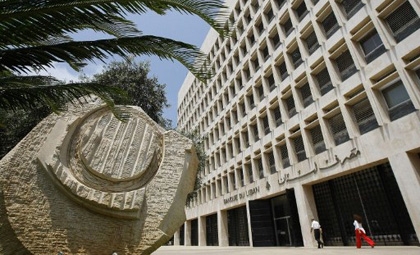Lebanon’s banking sector continues to perform strongly, with deposits up and liquidity levels strong. Ongoing concerns linger, however, regarding the fallout from instability in Syria, clashes in the North of Lebanon and the potential impact of new taxes that could prompt investors to move their funds elsewhere.
Though a renewed bout of political instability or internal strife cannot bode well for Lebanon’s banks, most are confident that the country’s lenders – backed by the Central Bank of Lebanon (Banque du Liban, BDL) – have built up solid defenses against rising threats. According to data issued by the BDL, bank deposits rose by 8% year-on-year in the first four months of 2012, reaching $122bn, and lending levels to the private sector topped $40bn, well above the $28bn exposure to state debt.
This depth of liquidity and more balanced spread of loans should help insulate the banks against any fluctuations, with the Association of Banks in Lebanon (ABL) forecasting deposit levels will climb a further 8% this year.
As of mid-May, the BDL’s own reserves stood at $73.29bn, up 12.3% on the same period in 2011, giving it ample room to maneuver in the financial markets and support the banking sector.
Lebanon’s banks have also moved to lower their profile in Syria, once a profitable market for them. In mid-May, Riad Salameh, the governor of the BDL, told local media that Lebanese banks had reduced their exposure to Syrian businesses, either operating in Lebanon or in Syria itself, by 40% over the past 15 months.
Salameh said that banks had acted to insulate themselves from the situation in Syria, though erecting some of these barriers would come at a cost, he added. “Banks have constituted general provisions already. That explains why you do not see an important growth in the profits of banks,” Salameh told local media in mid-May.
Salameh is not the only one confident that the banking sector is well placed to ride out any storms generated by the Syria crisis. On May 22, Fitch ratings agency downplayed suggestions that recent unrest in Lebanon represented a major concern or a threat to Beirut’s credit level. “The rating has a lot of tolerance for sporadic outbreaks of violence,” said Richard Fox, Fitch’s head of Middle East and Africa sovereign rating, told Bloomberg news agency.
Though Fitch is not yet overly concerned by the situation, not all Lebanese nationals share the agency’s careful optimism, with some moving away from the local currency and into the greenback. With a heightened sense of uncertainty hanging over the economy, in late May banks reported a trend toward converting accounts from the Lebanese pound into the US dollar. According to BDL data, almost 62% of deposits held by banks in Lebanon were denominated in dollars, a figure which could jump if there is a spike in tension or if the security situation deteriorates.
There is also some concern in the industry that government plans to increase the tax on earnings from interest could see some funds flow out of the system. On May 24, Mohammad Safadi, the minister of finance, unveiled the draft budget for 2012, which includes a two percentage point rise in the levy on interest revenue. Under the proposal, the tax on interest earnings will be raised to 7%, up from the current 5%.
The minister said the government was also considering lifting taxes on bank profits from 15% to 20% as another revenue-raising measure, and was holding talks with representatives of the banking sector over the proposal.
However, while few would argue that Lebanon is in need of more revenue, it appears the banking sector would like to seek alternative measures to bridge the deficit gap. According to Nassib Ghobril, chief economist at Byblos Bank, given the current economic climate, it would be better to reduce wastage in spending and tighten up on tax evasion, rather than burden the industry with new taxes.
“This is a very bad idea, particularly in a time of economic downturn. Any increase in taxation would strangle economic activity,” Ghobril told The Daily Star on May 25.
Though the government has said it reached a compromise with the industry over the increase on interest earnings, trimming the new level from 8% to 7%, the hike will make lodging funds with Lebanese banks a somewhat less-attractive proposition. However, Lebanon’s banks represent a safe haven in the region, even at a time when domestic tensions are on the rise, so some depositors may feel that the increased tax may still be offset by the safety their savings will enjoy.
Oxford Business Group
8 June
























































